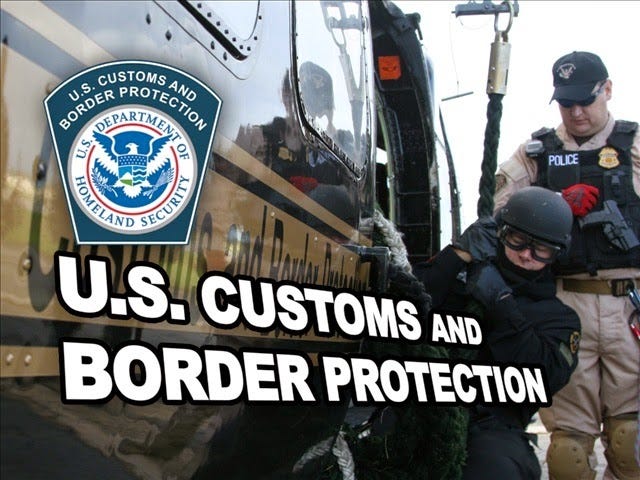Airport customs agents are taking detailed notes & sharing them with the FBI

Article first appeared in Asian Americans Advancing Justice:
The routine is familiar. Your international flight lands in the U.S. You grab your luggage and proceed through customs. “Where did you travel? Was it business or pleasure? Welcome home.” For the vast majority of travelers, that’s it. But over 5 million air travelers a year are sent to a “secondary inspection” where an officer may ask detailed questions about their travels and perform a thorough search of their bags.
We regularly advise the community that U.S. citizens have an absolute right to enter the U.S. That means a customs officer must let U.S. citizens into the country once they have declared the goods they are carrying and the countries they have visited.
During a secondary inspection, customs officers might ask intrusive questions about the people you saw abroad, the places you went, information about your relatives and their livelihoods, your life in the United States, or your religious and political views and associations. U.S. citizens are not obligated to answer such non-routine questions to enter the U.S..
Aside from proving you are a U.S. citizen and filing a customs declaration with information about the countries you visited, you are not obligated to answer detailed questions about the things you did and the people you saw abroad. (For legal permanent residents and other non-citizens, the situation is more complicated and we recommend consulting an immigration attorney for personalized advice before traveling.)
When a secondary inspection veers away from routine questioning, customs officers are no longer investigating whether you and the contents of your luggage may lawfully enter the country. Instead, they could be conducting an open ended intelligence-gathering operation. At that point, we recommend U.S. citizens politely assert their right to consult an attorney before answering any questions—the same way you should react if an FBI agent knocks on your door asking to speak with you. If you eventually decide to answer questions from law enforcement, it should be on your terms and with an attorney present to protect your interests.
Many people choose not to speak to an FBI agent without an attorney’s advice if they are visited at home or at work. The government, however, may be doing an end-run around that choice by confronting people at the border when they may feel more vulnerable. We recently obtained government documents proving that a customs officer conducting a secondary inspection might be working at an FBI agent’s behest—and the custom officer’s detailed notes about your personal life and reading habits may end up in an FBI intelligence file.
Several years ago one of our clients asked for help obtaining a copy of his FBI file under the Freedom of Information Act. He wanted to know why FBI agents kept contacting him to ask questions about the Muslim community in San Francisco. A few years after filing the request, the FBI finally released some records to the client, who has given us permission to publish some of the information to raise public awareness. You can view the files here and here. (The black redactions are our own, to protect our client’s privacy; the white redactions are the FBI’s.)
Here are some examples of the kind of information that ended up in our client’s FBI file after secondary inspection at San Francisco International Airport:
• Detailed information about the books in his bags, including descriptions of the authors based on information the customs officer apparently found on the Internet
• The name of the mosque he attends in the United States
• That his wife was 3 months pregnant and her address in a European country
• His employer’s name and information about his annual salary
• His plans to buy land in his country of origin
• Information about who he saw abroad, including details like how long they met for coffee and what they did together
• His roommates in the United States and their jobs, including information about the primary renter on the lease
• His educational aspirations and information about financial difficulty leading him to look for cheaper rent
• Notes from his passport, including information about his travel history
• His debit card number, found in his wallet
• His bank account number, taken from a check found in his luggage
Click here to see what Canadians go through with customs agents.
http://www.advancingjustice-alc.org/news-media/blog/records-show-customs-officers-send-traveler-reading-habits-fbi


